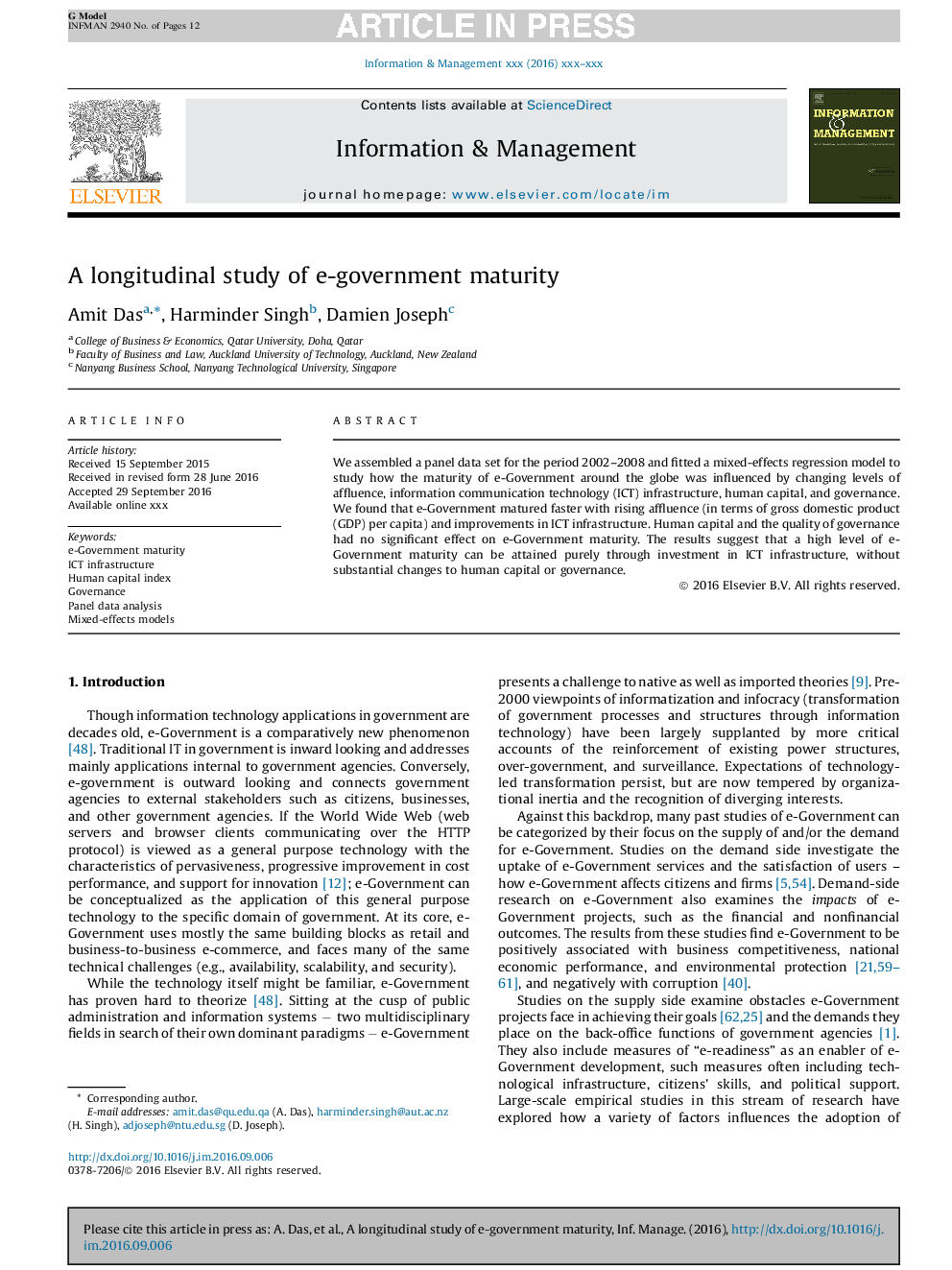| Article ID | Journal | Published Year | Pages | File Type |
|---|---|---|---|---|
| 4972560 | Information & Management | 2017 | 12 Pages |
Abstract
We assembled a panel data set for the period 2002-2008 and fitted a mixed-effects regression model to study how the maturity of e-Government around the globe was influenced by changing levels of affluence, information communication technology (ICT) infrastructure, human capital, and governance. We found that e-Government matured faster with rising affluence (in terms of gross domestic product (GDP) per capita) and improvements in ICT infrastructure. Human capital and the quality of governance had no significant effect on e-Government maturity. The results suggest that a high level of e-Government maturity can be attained purely through investment in ICT infrastructure, without substantial changes to human capital or governance.
Related Topics
Physical Sciences and Engineering
Computer Science
Information Systems
Authors
Amit Das, Harminder Singh, Damien Joseph,
